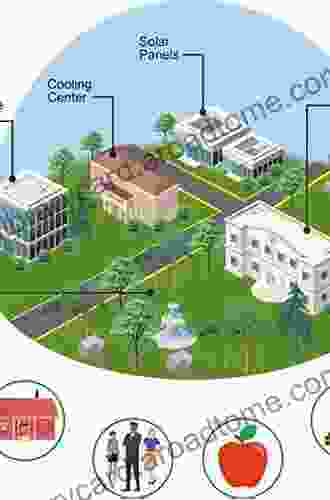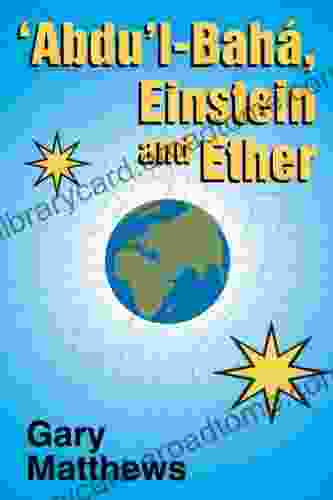An Information Economics Approach To Understanding Urban And Environmental

The rapid urbanization and environmental degradation of our planet have sparked an urgent need for innovative approaches to urban planning and environmental management. Traditional approaches have often fallen short in addressing the complex challenges of modern cities, characterized by information overload, resource scarcity, and social inequality.
5 out of 5
| Language | : | English |
| File size | : | 1274 KB |
| Text-to-Speech | : | Enabled |
| Enhanced typesetting | : | Enabled |
| Word Wise | : | Enabled |
| Screen Reader | : | Supported |
| Print length | : | 209 pages |
An Information Economics Approach to Understanding Urban and Environmental offers a groundbreaking perspective by integrating principles from information economics into the study of urban and environmental systems. This interdisciplinary approach sheds new light on how information shapes urban development, environmental outcomes, and the interactions between the two.
Key Concepts
Information asymmetry: Refers to situations where one party in a transaction has more information than the other. In urban and environmental contexts, this can lead to inefficiencies, inequities, and market failures.
Information externalities: Occur when the actions of one party generate information that affects the decision-making of others. For example, the development of a new park can increase property values in the surrounding area, benefiting nearby homeowners.
Information goods: Are goods that are non-rivalrous (consumption by one person does not prevent consumption by others) and non-excludable (it is difficult to prevent people from consuming them). Examples include public information, open data, and scientific knowledge.
Applications in Urban Planning
An Information Economics Approach can inform urban planning in several ways:
- Improved land use planning: Information about land use patterns, environmental conditions, and infrastructure can help planners make more informed decisions about land allocation and development.
- Enhanced transportation systems: Data on traffic flows, congestion patterns, and public transit usage can help optimize transportation networks and reduce environmental impacts.
- Affordable housing strategies: Information about housing markets, rental rates, and affordability can help identify areas of need and design targeted housing policies.
- Sustainable energy management: Data on energy consumption, renewable energy potential, and building efficiency can inform policies to reduce urban energy use and emissions.
Applications in Environmental Management
An Information Economics Approach can also contribute to environmental management:
- Conservation and restoration: Information about ecosystem services, biodiversity, and habitat connectivity can help prioritize conservation efforts and guide restoration projects.
- Pollution control: Data on air and water quality, emissions sources, and human health impacts can help develop targeted pollution control measures.
- Climate change adaptation: Information about climate projections, sea level rise, and extreme weather events can help cities prepare for and adapt to climate change impacts.
- Environmental justice: Information about environmental hazards, exposure risks, and vulnerable populations can help identify and address environmental inequities.
An Information Economics Approach to Understanding Urban and Environmental offers a powerful lens for analyzing and addressing the complex challenges facing our cities and environment. By integrating economic principles with data science, urban planning, and environmental science, this approach empowers us to make more informed decisions, design more efficient and equitable systems, and create more sustainable and resilient communities.
As we navigate the 21st century, the ability to harness information effectively will be crucial for building thriving cities and protecting our planet. An Information Economics Approach provides essential tools and insights for this critical endeavor.
5 out of 5
| Language | : | English |
| File size | : | 1274 KB |
| Text-to-Speech | : | Enabled |
| Enhanced typesetting | : | Enabled |
| Word Wise | : | Enabled |
| Screen Reader | : | Supported |
| Print length | : | 209 pages |
Do you want to contribute by writing guest posts on this blog?
Please contact us and send us a resume of previous articles that you have written.
 Book
Book Novel
Novel Page
Page Chapter
Chapter Text
Text Story
Story Genre
Genre Reader
Reader Library
Library Paperback
Paperback E-book
E-book Magazine
Magazine Newspaper
Newspaper Paragraph
Paragraph Sentence
Sentence Bookmark
Bookmark Shelf
Shelf Glossary
Glossary Bibliography
Bibliography Foreword
Foreword Preface
Preface Synopsis
Synopsis Annotation
Annotation Footnote
Footnote Manuscript
Manuscript Scroll
Scroll Codex
Codex Tome
Tome Bestseller
Bestseller Classics
Classics Library card
Library card Narrative
Narrative Biography
Biography Autobiography
Autobiography Memoir
Memoir Reference
Reference Encyclopedia
Encyclopedia Michael Bracken
Michael Bracken Patrick Jenning
Patrick Jenning Joyce Lain Kennedy
Joyce Lain Kennedy Alisha Sevigny
Alisha Sevigny R Venkata Rao
R Venkata Rao Tracy Salcedo
Tracy Salcedo Alice Atkins
Alice Atkins Alan Brinkley
Alan Brinkley Alicia Oltuski
Alicia Oltuski Alec Worley
Alec Worley Alicia L Anderson
Alicia L Anderson Alexander Shikhman
Alexander Shikhman Valerie Geller
Valerie Geller Alison Kelly
Alison Kelly Monika S Fleming
Monika S Fleming Allen Taylor
Allen Taylor Alasdair Cameron
Alasdair Cameron Alice Sparberg Alexiou
Alice Sparberg Alexiou Jean Adolphe Rondal
Jean Adolphe Rondal Don Lasseter
Don Lasseter
Light bulbAdvertise smarter! Our strategic ad space ensures maximum exposure. Reserve your spot today!
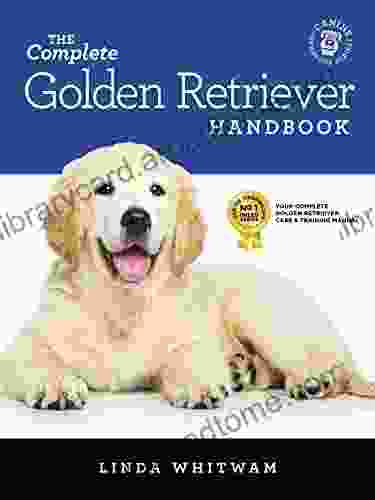
 Ivan TurgenevThe Complete Golden Retriever Handbook: Your Ultimate Guide to a Golden Life
Ivan TurgenevThe Complete Golden Retriever Handbook: Your Ultimate Guide to a Golden Life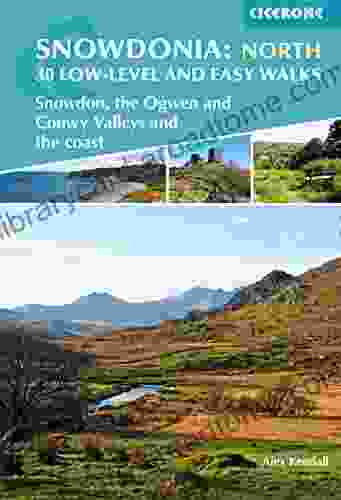
 Edgar Allan PoeEscape into the Heart of Snowdonia: A Literary Journey through Breathtaking...
Edgar Allan PoeEscape into the Heart of Snowdonia: A Literary Journey through Breathtaking...
 Marvin HayesGet Well By Treating The Cause Not Just The Symptoms Of Cfs Fibromyalgia Pots
Marvin HayesGet Well By Treating The Cause Not Just The Symptoms Of Cfs Fibromyalgia Pots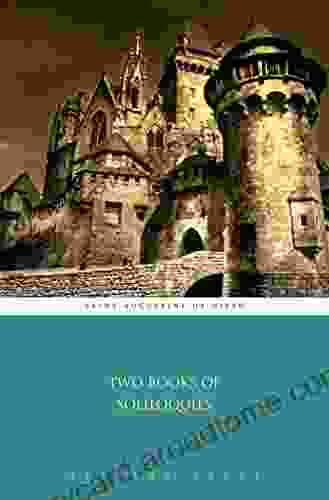
 Douglas FosterTwo of Soliloquies Illustrated: A Poetic Journey into the Depths of the Human...
Douglas FosterTwo of Soliloquies Illustrated: A Poetic Journey into the Depths of the Human... Neal WardFollow ·7.1k
Neal WardFollow ·7.1k Mason PowellFollow ·7.9k
Mason PowellFollow ·7.9k José MartíFollow ·9k
José MartíFollow ·9k Edward ReedFollow ·19.6k
Edward ReedFollow ·19.6k Fabian MitchellFollow ·5k
Fabian MitchellFollow ·5k Leon FosterFollow ·17.5k
Leon FosterFollow ·17.5k Tom HayesFollow ·2.2k
Tom HayesFollow ·2.2k J.D. SalingerFollow ·8.6k
J.D. SalingerFollow ·8.6k
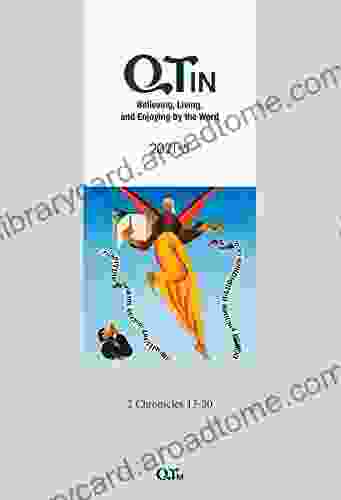
 Joshua Reed
Joshua ReedBelieving, Living, and Enjoying by the Word: Unlock the...
In a world filled with...
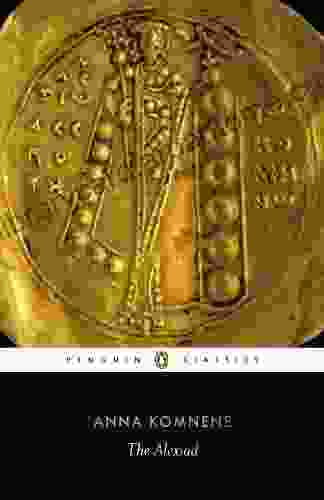
 Cason Cox
Cason CoxUnveil the Extraordinary World of "The Alexiad": A...
Delve into the Heart of Byzantine...
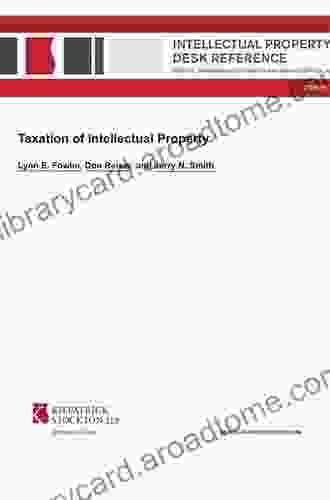
 Junot Díaz
Junot DíazUnveiling the Intricacies of Intellectual Property: Your...
In today's knowledge-driven economy,...
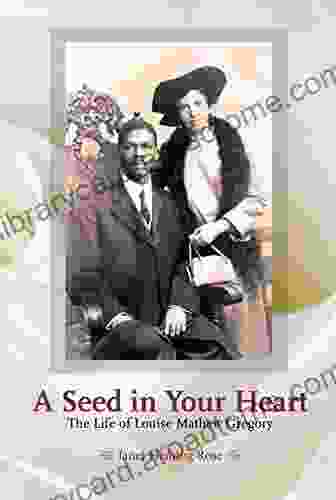
 Aleksandr Pushkin
Aleksandr PushkinThe Life of Louise Mathew Gregory: A Tapestry of Triumphs...
A Woman of Extraordinary Substance Louise...

 Leon Foster
Leon FosterHomemade Lotion For Beginners: Transform Your Skincare...
Step into the world of...

 Terence Nelson
Terence NelsonUnveiling the Secrets of Radio, Television, and Film: An...
: Embarking on a Journey into the...
5 out of 5
| Language | : | English |
| File size | : | 1274 KB |
| Text-to-Speech | : | Enabled |
| Enhanced typesetting | : | Enabled |
| Word Wise | : | Enabled |
| Screen Reader | : | Supported |
| Print length | : | 209 pages |


